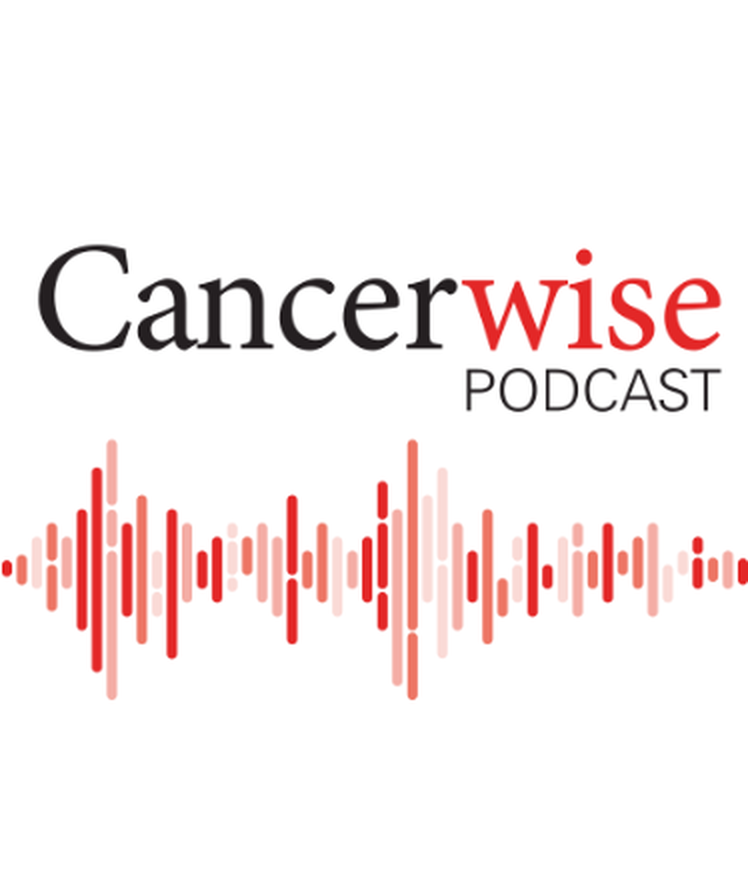Dermatologist: How to deal with targeted therapy-related skin rashes
June 27, 2025
Medically Reviewed | Last reviewed by Anisha Patel, M.D., on June 27, 2025
EGFR inhibitors are a class of targeted therapy used to treat several cancers, including colorectal cancer.
About 80% of patients who receive them will also develop an acne-like rash as a side effect. Sometimes, this rash can be quite severe. If not controlled adequately, it may force patients to stop taking the EGFR inhibitor entirely and explore other treatment options.
But why does this skin-related side effect even happen? Can it be prevented? And, what strategies have we developed to control it, so that patients can stay on their treatment plans?
Christine Parseghian, M.D., a medical oncologist who specializes in the treatment of gastrointestinal cancers, and I recently explored this topic on MD Anderson’s Cancerwise podcast. Here are a few highlights of what we shared.
Why EGFR inhibitors can cause an acne-like rash
EGFR stands for epidermal growth factor receptor. The epidermis is the top layer of skin. So, the same growth receptors that EGFR inhibitors target on the surface of some tumor cells are also present in the skin. That’s why there’s such a high incidence of this side effect with this particular therapy.
An EGFR-inhibitor-related rash is called “acneiform” because it resembles the same kind of acne some teenagers develop, with deep cysts and inflamed papules and pustules. The mechanism that causes it is different, of course, but you still tend to see it in the same places, including the head and neck, chest and upper back. It can be pretty itchy and painful for patients with deeper or cystic lesions.


Featured Podcast:
Navigating skin side effects of targeted cancer therapy
Preventing targeted therapy-related skin rashes
Skin-related side effects can be prevented, to some degree. But early management is critical. EGFR inhibitors cause a breakdown in the normal skin barrier, which extends down into the hair follicle. So, we recommend:
- Using bland emollients to moisturize: Creams are often thicker than lotions and will keep the skin intact and adequately hydrated.
- Avoiding over-the-counter acne treatments: These frequently have an alcohol base and can dry out already irritated skin, making it even more inflamed.
- Staying out of the sun: This particular rash can be sun-sensitive, so wear UPF-rated clothing and protect any exposed skin with a mineral sunscreen of at least SPF 30.
Our doctors are usually really good about thinking ahead, though. So, when they prescribe a targeted therapy like an EGFR inhibitor, they also normally prescribe additional therapies to help prevent or manage any known side effects, including this rash. That means you can start treating them quickly if they arise.
Strategies we’ve developed to treat this particular side effect
We want to keep patients on the appropriate cancer therapy at the appropriate dosage for as long as possible. We also want to avoid any treatment delays due to side effects. So, from a dermatological standpoint, our goal is to manage this skin rash in a way that allows patients to stay on whatever course of cancer therapy their oncologist thinks is best.
One exciting development that could help us reach this goal is the result of a recent clinical trial. It involved BRAF inhibitors and focused exclusively on this side effect. BRAF is another signaling molecule that follows the same pathway as EGFR to take advantage of a particular molecular anomaly.
The clinical trial only had 117 participants, but the administration of the BRAF inhibitor proved both safe and effective. It not only decreased patients’ symptoms and inflammation, it also helped with the visible rash, which was really encouraging.
The most important aspect of it, though, was that it helped keep many of these patients on their treatment track. Having to discontinue therapy due to side effects is a significant issue in cancer treatment, so hopefully, this will make it more preventable.
Anisha Patel, M.D., is a dermatologist at MD Anderson.
Request an appointment at MD Anderson online or call 1-877-632-6789.
Early management is critical.
Anisha Patel, M.D.
Physician & Researcher
